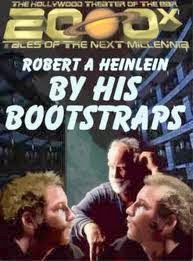Poul Anderson, The Corridors Of Time (London, 1968).
Hu and Lockridge exit the Danish time corridor at the end of August, 1827 BC, later than Hu had wanted.
"'The uncertainty factor is what makes transtemporal liaison so difficult,' Hu complained. He half turned back to the gate. 'We might try again.' The four soldiers who accompanied them showed alarm. One man actually started to protest. Hu changed his mind. 'No. That sort of thing can entangle you in the grisliest paradoxes, if you're unlucky.'" (p. 170)
If we have read this far, then we know that the matter must be very serious for a soldier to think of challenging a Warden. But what do they fear? There are only two causal paradoxes and this scenario excludes causality violation. They know that they will not meet their younger selves because they have no memory of having met their older selves. If they do meet their older selves, then those older selves, having been through the encounter once, should know how to conduct it. This kind of paradox sounds as if it would be an intriguing experience and, in any case, would straighten itself out in time - but I lack Robert Heinlein's ability to script a conversation between three cross-sections of a single individual.
Auri/Flower Feather can handle it, when, waiting on the shore, she knows that she will "'...see our young selves go by...I will give them our love and be glad for what they have ahead of them.'" (pp. 212-213)
Auri has not hastened down the corridors to wage a war but has passed through the underworld and learned wisdom with Lynx.

No comments:
Post a Comment